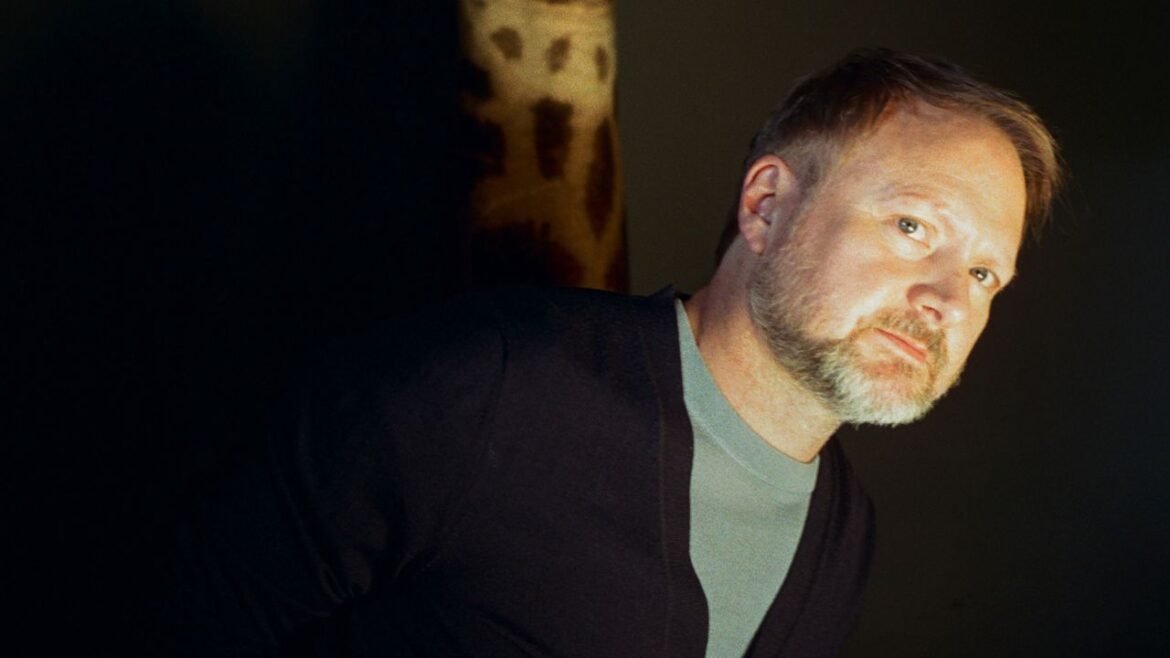When the film director Rian Johnson was a child, he picked up the final book that Agatha Christie published before her death, in 1976: “Curtain: Poirot’s Last Case.” The novel was sitting on a shelf in his grandparents’ sprawling home, in Denver. It had a moody black cover that featured an illustration of the mustachioed detective Hercule Poirot. “It felt very adult,” Johnson told me recently. “Very creepy.” The story takes place at a grand country house where the guests have an unfortunate habit of dying, or nearly dying, under seemingly unrelated circumstances. A hunting accident. A poisoning. A bullet to the head.
The book was not only a dynamite mystery; it also represented a kind of magic trick. Although it was published at the end of Christie’s life, she wrote the manuscript in the middle of her career, in the nineteen-forties. Then, in a twist worthy of Poirot, she sealed it away in a bank vault for thirty years, insuring that it was kept secret. As her popularity waned, she suddenly produced—voilà!—a book written at the height of her powers. The novel was, Johnson said, “very mysterious and awesome, and very, very weird.” Soon, he was bingeing Christie novels two or three at a time. He once walked into a fire hydrant while reading one.
In Los Angeles, earlier this year, Johnson’s normally mild countenance grew animated as he recounted the plot of “Curtain.” “Do you want it spoiled?” he asked. “Do you really?” We were sitting in the sunlit offices of his production company, T-Street, surrounded by shelves filled with trinkets: a hollow Bible concealing a cigar, an engraved knife. On the wall was a print by the eighteenth-century artist Matthias Buchinger, who was born without hands or legs, from the collection of the late magician Ricky Jay. Johnson, who is short, with a salt-and-pepper beard, has a nerdy, understated demeanor. He was dressed casually, in the type of short-sleeved button-down you might wear to a family barbecue. He believes that people-pleasing leads well into directing. If you didn’t know better, you might mistake him for a particularly nice I.T. guy.
In 2019, Johnson tried his own hand at a murder mystery with the film “Knives Out.” Close-quartered and stylish, the movie begins at a Gothic New England mansion where the wealthy patriarch Harlan Thrombey has been found with his throat slit. Harlan has an avaricious family, each member of which has something to gain from his death. Like Christie’s novels, the film is a study of its time. The Thrombeys argue bitterly about politics, money, and immigration. (“Alt-right troll,” Harlan’s granddaughter says to her cousin. “Liberal snowflake,” he responds.) Like Christie, Johnson gave his mystery a detective with a high regard for his own intellect: the Southern gentleman Benoit Blanc, played by Daniel Craig. The film was a surprise hit with critics and audiences. The Guardian called it “deliciously entertaining.”
At fifty-one, Johnson is a Hollywood rarity: a writer-director with a singular vision, able to turn his oddball, idiosyncratic stories—written by hand, in moleskin notebooks—into blockbuster hits. He flits among genres, creating intricate, puzzle-like plots that reward multiple viewings. The success of “Knives Out” cemented Johnson’s status as an Agatha Christie for the Netflix age. Natasha Lyonne, who stars in his mystery TV series, “Poker Face,” told me, “His plots are all right there in his mind’s eye.” In the writers’ room, he will quietly flesh out inventive killings while others are discussing home renovations, then reveal them with a flourish. Craig said, of Johnson, “He’s always playing 4-D chess.”



